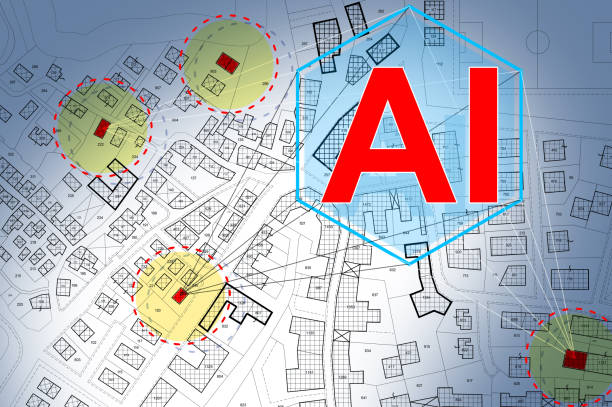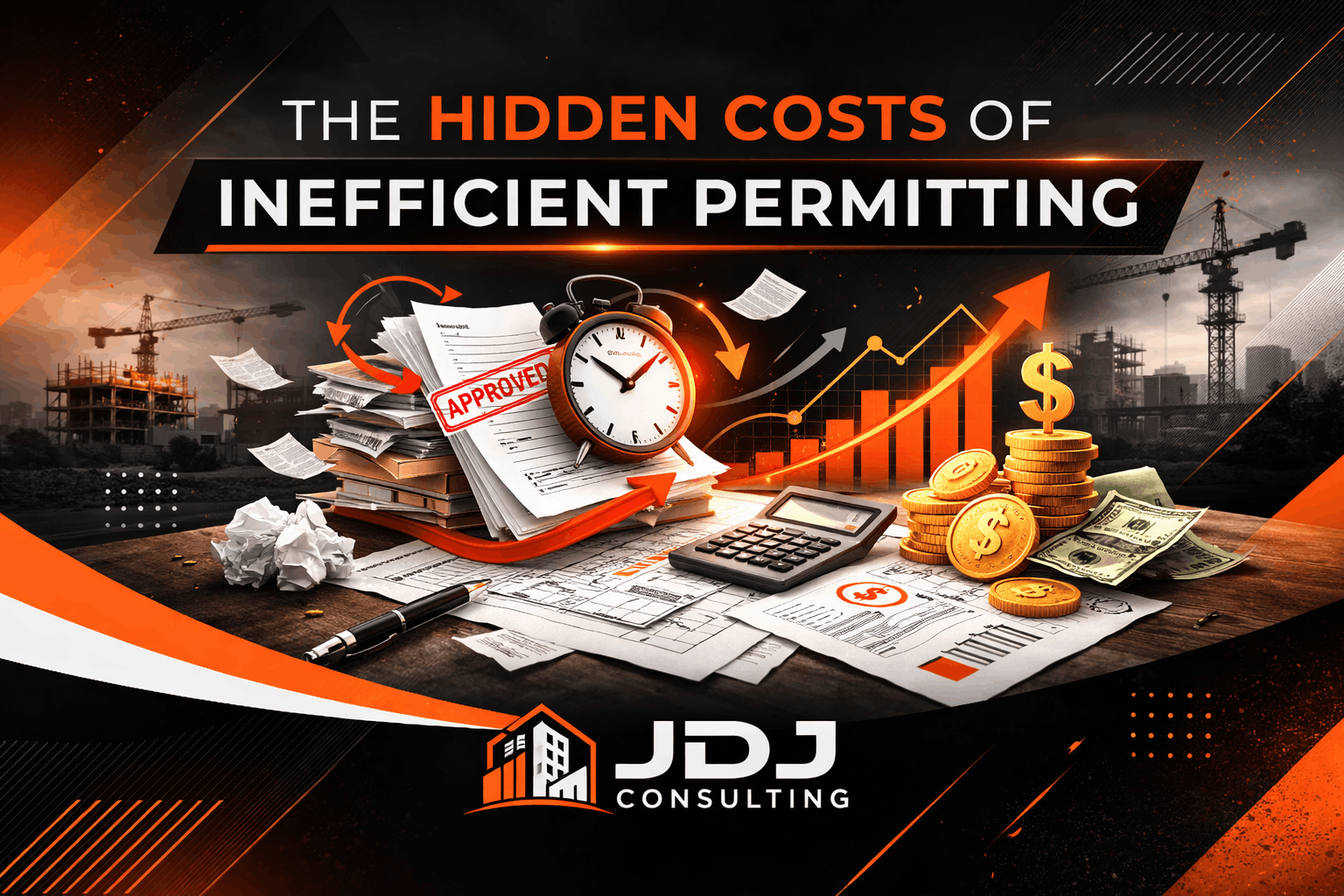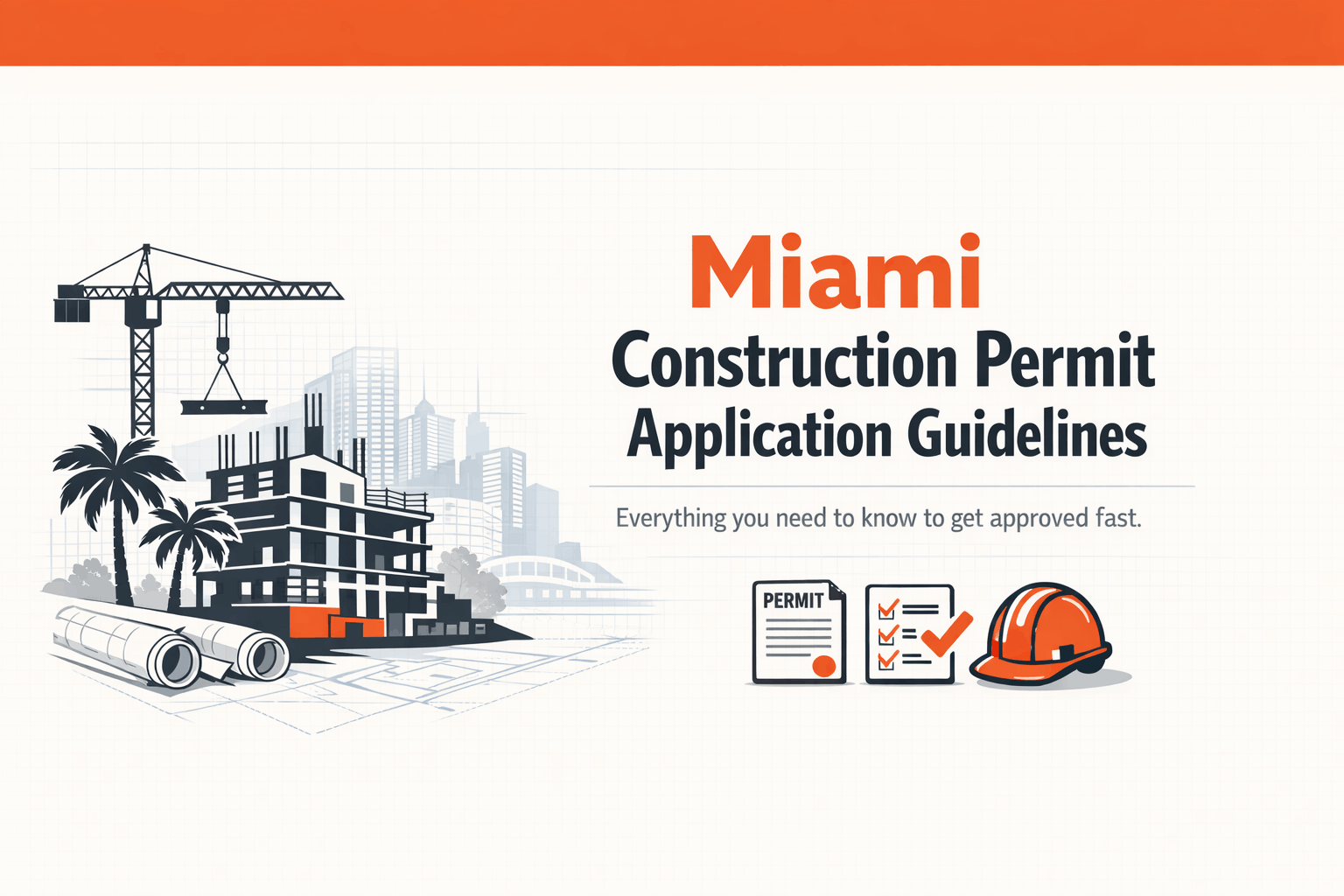Artificial intelligence is changing how real estate professionals work. From analyzing data to managing properties, AI tools now help teams move faster and make better decisions.
Table of Contents
ToggleIn 2025, the biggest advantage isn’t just having data — it’s knowing how to use it. That’s where today’s top AI solutions come in. They simplify complex tasks, improve accuracy, and help brokers, investors, and consultants save hours every week.
This list brings together the best AI tools that are shaping the real estate industry right now. You’ll also learn how Jake Heller, CEO of JDJ Consulting Group and founder of the AI for CRE Collective, is leading the conversation through his community, podcast, and newsletter.
AI Adoption in Real Estate (2025)
Source: JDJ Consulting Market Insights
1. AI for CRE Collective – The Hub for Real Estate AI Innovators
If you want to understand how AI truly fits into commercial real estate, this is where you start. The AI for CRE Collective isn’t just a platform — it’s a growing community built by Jake Heller.
It brings together real estate professionals, consultants, and investors who are exploring how AI can make their businesses smarter and more efficient. The collective focuses on practical workflows, shared resources, and real-world results — not just theories.
Why It Stands Out
Offers AI workflows tailored for brokers, developers, and consultants.
Hosts a growing podcast and newsletter that discuss emerging tools and strategies.
Helps professionals test and adopt AI systems with less confusion and cost.
Members can also access an expanding library of prompt templates and data-driven discussions from other CRE professionals. This makes it easier to apply AI in everyday business — from lead tracking to development feasibility.
Table 1: What You Get Inside the AI for CRE Collective
| Feature | Description |
|---|---|
| Podcast and Newsletter | Weekly updates from Jake Heller and guest experts on AI trends in real estate. |
| AI Workflows Library | Ready-to-use templates for valuation, deal analysis, and client reporting. |
| Community Forum | Direct access to real estate professionals testing the latest AI tools. |
| Resource Vault | Guides, case studies, and tutorials on integrating AI into CRE operations. |
How It Helps Real Estate Professionals
Developers get faster project analysis using AI workflows.
Brokers find better leads with smarter data tools.
Consultants improve client reporting through automation.
It’s a space for learning, testing, and staying connected with what’s next in AI for real estate. That makes it one of the most relevant platforms to follow in 2025.

2. Cherre – Unified Real Estate Data Platform
Cherre helps real estate firms bring all their data into one place. Most teams still spend hours merging spreadsheets and updating property data. Cherre solves that problem by connecting multiple data sources into one clean, searchable dashboard.
It’s a platform many asset managers and investors now rely on for quick insights. Instead of chasing missing details, they can focus on what really matters — making informed decisions.
Key Features
Combines financial, property, and market data into a single platform.
Offers built-in integrations with property software like Yardi and MRI.
Supports predictive analytics for investment and portfolio management.
Table 2: What Makes Cherre Valuable for CRE Teams
| Function | Benefit |
|---|---|
| Data Integration | Connects fragmented property, lease, and financial data. |
| Visualization Tools | Clear dashboards for faster reporting. |
| Predictive Insights | Helps identify property trends before they shift. |
| Collaboration | Teams can access the same data in real time. |
Cherre is especially powerful for multifamily and commercial investors who manage large portfolios. It takes what used to be messy, disconnected information and turns it into clear insights anyone on your team can understand.
3. Skyline AI (Now JLL GPT) – Predictive Investment Intelligence
Skyline AI, now part of JLL GPT, brings advanced investment forecasting to commercial real estate. It analyzes billions of data points to predict property values and future performance. For investors, that means faster deal screening and more confidence in every acquisition.
Why It’s Useful
Provides live data analysis on market trends and comparable assets.
Helps identify off-market opportunities before competitors do.
Reduces manual underwriting work with predictive modeling.
Skyline AI is built for professionals who make decisions on property performance and capital deployment. With JLL behind it, the platform continues to evolve as a core part of modern CRE strategy.
Top AI Use Cases in Real Estate
AI speeds up appraisal reports.
Predicts rent and demand trends.
Chatbots handle tenant queries.
AI tracks site progress visually.
How AI Improves CRE Workflows
- 📊 Data Collection → Market insights gathered automatically
- 🤖 Analysis → Algorithms detect trends and risks
- 💡 Decision Support → AI suggests pricing or investment moves
- 📈 Reporting → Reports generated instantly for clients
Source: AI for CRE Collective
4. Leverton (MRI Software) – AI Document Extraction and Lease Intelligence
Anyone who’s worked in commercial real estate knows how time-consuming lease reviews can be. That’s where Leverton, now part of MRI Software, comes in. It uses AI-based document extraction to pull key data from leases, contracts, and reports in minutes.
You upload your files, and Leverton automatically identifies important details like rent clauses, renewal dates, or tenant obligations. For asset managers and consultants, this means less manual review and fewer costly errors.
Key Benefits
Extracts and organizes lease data in multiple languages.
Reduces document review time by more than 70%.
Integrates directly with MRI, Yardi, and other CRE platforms.
Supports due diligence, compliance, and financial reporting.
Leverton’s value lies in precision. It helps real estate teams keep documentation clean, searchable, and ready for audit or portfolio analysis at any time.
Example Use Case
A property management team handling 300 leases used Leverton to scan and extract critical data. The result? They saved over 200 hours of manual data entry each month and reduced reporting delays by almost half. That’s the kind of time savings that lets teams focus on growth instead of paperwork.
5. Reonomy – AI Property Intelligence Platform
Reonomy remains one of the best-known names in property data intelligence. It’s widely used by brokers, investors, and lenders to find property ownership details, transaction history, and market connections.
Using AI, Reonomy builds a 360° view of every commercial property in the U.S. This means users can see not just who owns what, but how properties relate to each other through companies, transactions, or portfolios.
Why Real Estate Firms Rely on Reonomy
Provides comprehensive ownership and contact data.
Uses predictive analytics to find off-market opportunities.
Helps brokers identify qualified leads faster.
Connects with CRM systems for easy data integration.
Reonomy gives professionals more context before they reach out to property owners or investors. It’s like having a digital assistant that keeps your market knowledge up to date every day.
Sample Table: Reonomy Features Overview
| Feature | What It Offers |
|---|---|
| Ownership Search | Find property owners, LLCs, and linked portfolios. |
| Transaction History | View sales, mortgages, and refinancing data. |
| Predictive Insights | Estimate property potential and upcoming sales. |
| Data Exports | Download lists for prospecting and analysis. |
Reonomy is best suited for teams that depend on high-quality data for lead generation or acquisition strategy. It helps simplify complex ownership structures and lets firms act on accurate, real-time intelligence.
6. OpenSpace – AI for Construction and Site Documentation
For developers, OpenSpace is one of the most practical AI tools available today. It combines 360° cameras with computer vision to document construction sites automatically. You walk the site, record footage, and the software maps images directly to your floor plans.
It’s fast, visual, and incredibly efficient — a game-changer for tracking project progress.
Quick Quiz: How Ready Is Your Business for AI?
Answer these 3 simple questions:
- Do you already use digital tools for property data?
- Do you track performance metrics regularly?
- Are your workflows cloud-based?
Results: If you said “yes” to 2 or more — you’re ready for AI integration!
AI Adoption by Real Estate Sector (2025)
Source: JDJ Consulting Research
What Makes OpenSpace Stand Out
Creates automatic photo maps for real-time construction tracking.
Identifies risks and safety issues early.
Integrates with Procore, Autodesk, and other project tools.
Reduces reporting time and keeps all site data cloud-based.
For consultants or owners managing multiple projects, OpenSpace makes remote monitoring easy. You can log in anytime to see exact project conditions without stepping foot on-site.
Real-World Impact
| Use Case | Outcome |
|---|---|
| Developers | Save hours each week on documentation and reporting. |
| Consultants | Get reliable visual updates for clients and stakeholders. |
| Contractors | Track safety compliance and construction milestones. |
OpenSpace shows how AI isn’t just about automation — it’s about visibility. In a city like Los Angeles, where project schedules are tight, having clear site data helps teams make faster, smarter decisions.

7. Valcre – AI Appraisal and Valuation Automation
Valuations are a core part of commercial real estate — but also one of the most time-consuming. Valcre makes that process easier with AI-assisted appraisal management. It’s built for valuation professionals who want faster, more accurate reports.
The platform automates data entry, standardizes templates, and connects directly with market databases. That means fewer manual edits and more consistent results across teams.
Top Benefits
Streamlines the appraisal workflow from start to finish.
Reduces repetitive data tasks through automation.
Provides easy access to comparable property data.
Improves consistency and reporting accuracy.
Valcre helps appraisers spend less time formatting reports and more time analyzing results. For CRE firms managing multiple valuations each month, that efficiency can make a big difference.
Quick Overview: How Valcre Supports Real Estate Teams
| Function | Advantage |
|---|---|
| Data Import Tools | Pulls market and property data automatically. |
| Custom Templates | Keeps appraisal formats consistent across projects. |
| Collaboration | Multiple appraisers can work on the same file securely. |
| Analytics Dashboard | Offers insights into performance and turnaround time. |
8. Enodo – Multifamily Underwriting Made Smarter
When it comes to multifamily investing, few tools are as precise as Enodo. It uses machine learning to predict rents, expenses, and market trends. That makes it ideal for investors who want to underwrite deals quickly and confidently.
Instead of building spreadsheets from scratch, users can input property details and let Enodo run projections. Its algorithms then estimate returns, cap rates, and rent growth potential.
Why Investors Like Enodo
Cuts underwriting time from days to minutes.
Offers data-driven rent and expense forecasts.
Generates detailed visual reports for investors.
Helps evaluate deals in both stable and emerging markets.
With Enodo, investors can analyze multiple deals side by side and focus on the ones that actually make sense. It’s a clean, easy-to-use tool that makes underwriting far more efficient.
9. Hyro – Conversational AI for Real Estate Communication
Strong communication builds trust — and Hyro helps firms maintain that connection with less effort. This conversational AI platform automates responses to tenant, buyer, and client inquiries in real time.
Unlike traditional chatbots, Hyro understands natural language. It can respond to questions about property availability, maintenance requests, or pricing instantly.
Core Features
Voice and chat automation for property websites and leasing portals.
Integrates with CRM and property management systems.
Provides conversation analytics to improve service quality.
For leasing agents and property managers, Hyro reduces repetitive questions while keeping communication personal. It’s ideal for larger portfolios where fast, accurate responses matter most.
Table: Example Hyro Use Cases
| Real Estate Role | How Hyro Helps |
|---|---|
| Property Managers | Handles tenant requests and maintenance updates. |
| Leasing Teams | Responds to leads instantly through chat or voice. |
| Developers | Collects buyer inquiries and routes them to sales reps. |
10. Local Logic – AI for Location Intelligence
Local Logic adds a different kind of insight to real estate — location data. It analyzes everything around a property, from walkability and transit access to school ratings and demographics.
This helps developers, investors, and agents understand a neighborhood’s true value — not just its price per square foot. For site selection or market research, it’s an incredible time-saver.
Key Advantages
Combines over 85 location variables for better investment decisions.
Offers tools for comparing multiple neighborhoods or sites.
Visualizes market demand and community growth.
Local Logic gives context behind every property decision. It helps teams make smarter moves by understanding how people actually live and move through a city.

How Jake Heller and AI for CRE Collective Help You Stay Ahead
As AI becomes a standard part of real estate strategy, staying informed is essential. That’s why Jake Heller, CEO of JDJ Consulting Group, built the AI for CRE Collective — a space where professionals can explore new tools, learn from others, and share workflows.
Through the podcast, newsletter, and community discussions, members gain practical insights on integrating AI into daily operations.
Whether you’re a developer looking for site intelligence, a broker automating reports, or a consultant improving workflows — this community connects you to the people and tools shaping the future of CRE.
Ready to learn more?
Visit AI for CRE Collective or schedule a free consultation with JDJ Consulting Group.
Conclusion
AI in real estate is no longer a future trend — it’s happening now. From data platforms like Cherre and Reonomy to workflow communities like AI for CRE Collective, these tools are redefining how work gets done.
The best part? You don’t need to be a tech expert to benefit. Start small, explore what fits your business, and let tools handle the heavy lifting.
With the right strategy, AI becomes less about automation — and more about smarter, faster, and better decision-making.
AI Time Savings Calculator ⏱️
Estimate how much time and money your real estate team could save by using AI-powered tools.
Your AI Impact Summary
💡 Tip: Even a 25–35% efficiency boost can save thousands per employee each year.
Source: JDJ Consulting – Book a free consultation to assess your AI potential.
Need Help Adopting AI for Your Real Estate Business?
Book a free consultation with JDJ Consulting’s experts today.
Book Your ConsultationFAQs: AI Solutions for Real Estate
What are the top AI tools for real estate professionals in 2025?
AI tools like Skyline AI, Cherre, and Reonomy help real estate professionals work faster. They analyze market trends, manage properties, and improve lead generation. Agents can get better property valuations, predictive insights, and client communication support.
How does AI improve lead generation in real estate?
AI tracks market data and finds high-potential clients. It can automate follow-ups and help real estate agents convert leads faster. Using AI-powered CRM, agents can manage contacts and nurture leads efficiently.
Can AI help create better listing descriptions?
Yes. Generative AI writes engaging listing descriptions. It highlights property features, neighborhood data, and selling points. This saves time and boosts marketing efforts for agents and brokers.
What is predictive analytics in real estate?
Predictive analytics looks at past and current data to forecast property values and demand. AI tools guide investors and CRE teams on buying, leasing, and portfolio strategies.
How does AI support property management?
AI automates property management tasks like scheduling maintenance and messaging residents. It tracks operational data and improves tenant experience with virtual tours and 3D scans.
What AI solutions help commercial real estate?
CRE teams use AI for lease intelligence, market insights, and financial data. Tools help manage space, optimize pricing, and make smart investment decisions.
How do AI tools help with virtual staging and tours?
AI creates virtual staging and AR tours. Buyers can visualize homes better. This improves marketing and helps close deals faster.
Can AI help analyze market trends for real estate investments?
Yes. AI collects neighborhood data, interest rates, and market reports. Investors get insights on property demand, risks, and opportunities to improve portfolio strategies.
How does AI improve real estate CRM systems?
AI-powered CRMs automate follow-ups and track lead conversion. Agents get real-time market data and can communicate with clients via SMS, email, or voice.
How does generative AI impact the real estate industry?
Generative AI enhances listing photos, presentations, and user guides. It speeds up workflows, helps with valuation reports, and keeps agents competitive in a data-driven market.






